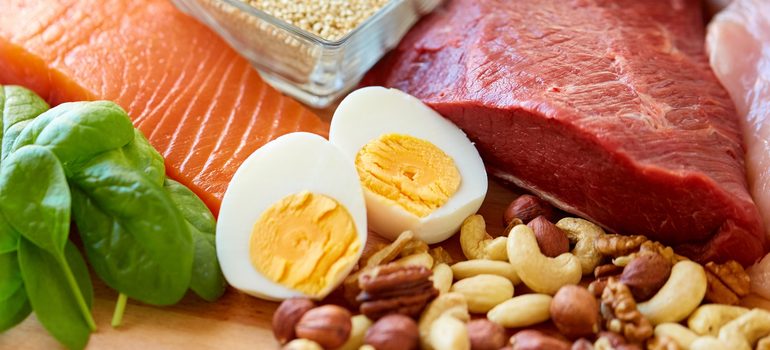Boost Your Fitness: The Ultimate High-Protein Diet for Weight Loss and Muscle Gain!

A high-protein diet has gained immense popularity among those looking to lose weight and build muscle. Protein plays a crucial role in the body, aiding in tissue repair, immune function, and the production of hormones and enzymes. This article explores the benefits of a high-protein diet, shares expert insights, and provides practical recipes, food options, and snacks.
The Benefits of a High-Protein Diet
- Weight Loss: Research shows that a high-protein diet can promote satiety, leading to reduced calorie intake. According to a study published in The American Journal of Clinical Nutrition, participants who consumed a higher protein intake experienced significant weight loss compared to those on lower protein diets .
- Muscle Gain: Protein is essential for muscle repair and growth. A study in the Journal of Sports Medicine and Physical Fitness found that individuals engaging in resistance training increased their muscle mass more effectively when they consumed sufficient protein .
- Improved Metabolism: Increased protein intake can boost the thermic effect of food (TEF), which refers to the energy expended in digesting and processing nutrients. Higher protein diets can elevate metabolism by 20-30% compared to 5-10% for fats and carbohydrates .
Expert Opinions
Dr. Ian Richard, a registered dietitian nutritionist, emphasizes the importance of incorporating high-quality protein sources into one’s diet. “Not only does protein help with weight management, but it also plays a vital role in muscle recovery and building,” she states. “Focus on diverse sources like lean meats, fish, dairy, legumes, and nuts for a balanced approach.”
Dr John Tylor, adds, “For those looking to gain muscle, pairing protein intake with resistance training is key. Consuming protein-rich snacks post-workout can significantly aid in recovery and muscle synthesis.”
High-Protein Foods to Include
- Lean Meats: Chicken breast, turkey, and lean cuts of beef or pork.
- Fish: Salmon, tuna, and cod are excellent sources of protein and healthy fats.
- Dairy: Greek yogurt, cottage cheese, and milk provide high protein and calcium.
- Legumes: Lentils, chickpeas, and black beans are plant-based protein powerhouses.
- Nuts and Seeds: Almonds, peanuts, and pumpkin seeds offer protein along with healthy fats.
High-Protein Recipes
- High-Protein Smoothie:
- Ingredients: 1 scoop of protein powder, 1 banana, 1 tablespoon of almond butter, 1 cup of spinach, and 1 cup of almond milk.
- Instructions: Blend all ingredients until smooth for a quick, nutritious snack or meal replacement.
- High-Protein Breakfast Scramble:
- Ingredients: 3 egg whites, 1 whole egg, spinach, tomatoes, and feta cheese.
- Instructions: Scramble all ingredients in a non-stick pan for a filling breakfast rich in protein.
High-Protein Snacks and Bars
- High-Protein Snacks:
- Hard-boiled eggs, Greek yogurt with berries, and cottage cheese with pineapple.
- High-Protein Bars:
- Look for bars with at least 15 grams of protein per serving. Brands like Quest and RXBAR provide clean, high-protein options without excess sugar.
High-Protein Meals
- Grilled Chicken Salad: Combine grilled chicken breast, mixed greens, cherry tomatoes, and a vinaigrette for a nutritious, protein-packed meal.
- Quinoa and Black Bean Bowl: Mix cooked quinoa, black beans, diced peppers, and avocado for a hearty, plant-based meal high in protein.
A high-protein diet can be an effective strategy for weight loss and muscle gain when combined with a balanced diet and exercise regimen. Incorporating a variety of protein sources and meal options will not only help achieve fitness goals but also contribute to overall health.
References
- The American Journal of Clinical Nutrition. (2015). Dietary protein and body weight: a systematic review and meta-analysis.
- Journal of Sports Medicine and Physical Fitness. (2017). Protein intake and muscle mass: A systematic review and meta-analysis.
- Maughan, R. J., et al. (2012). Protein and exercise: A review of the literature. Journal of Sports Sciences.
Incorporating a high-protein diet is beneficial for anyone looking to improve their health, whether their goal is weight loss or muscle gain. By following the guidelines and recipes outlined in this article, individuals can create a balanced approach to nutrition that supports their fitness goals.






